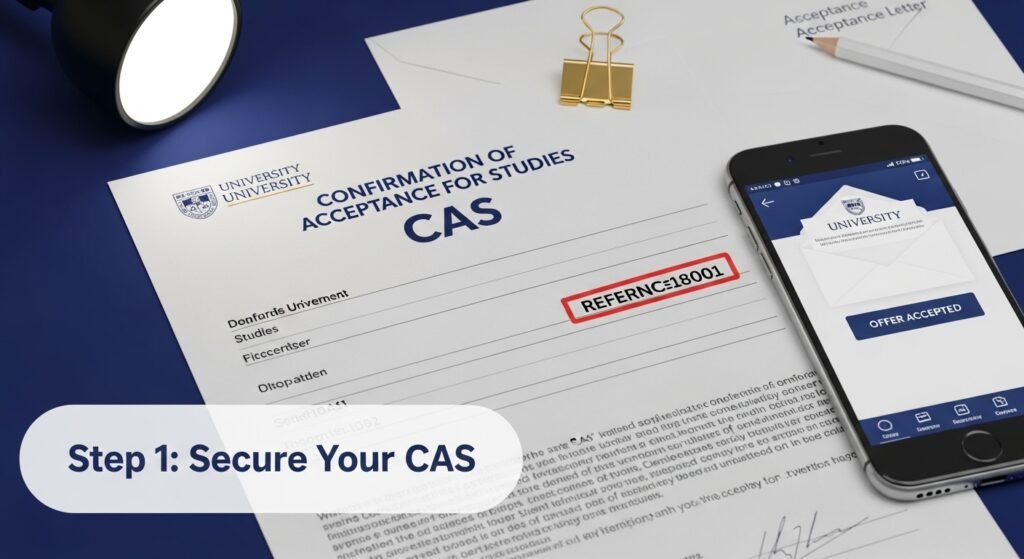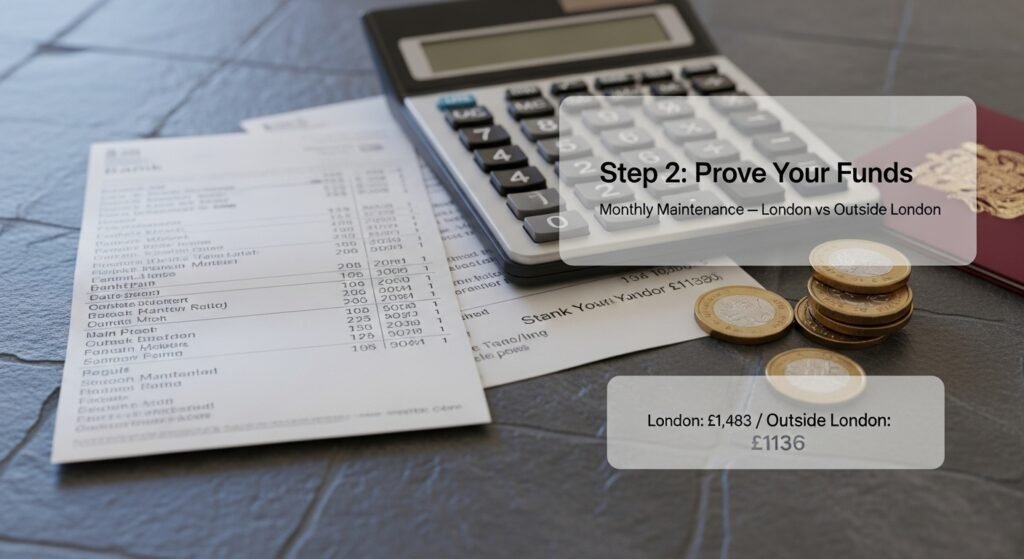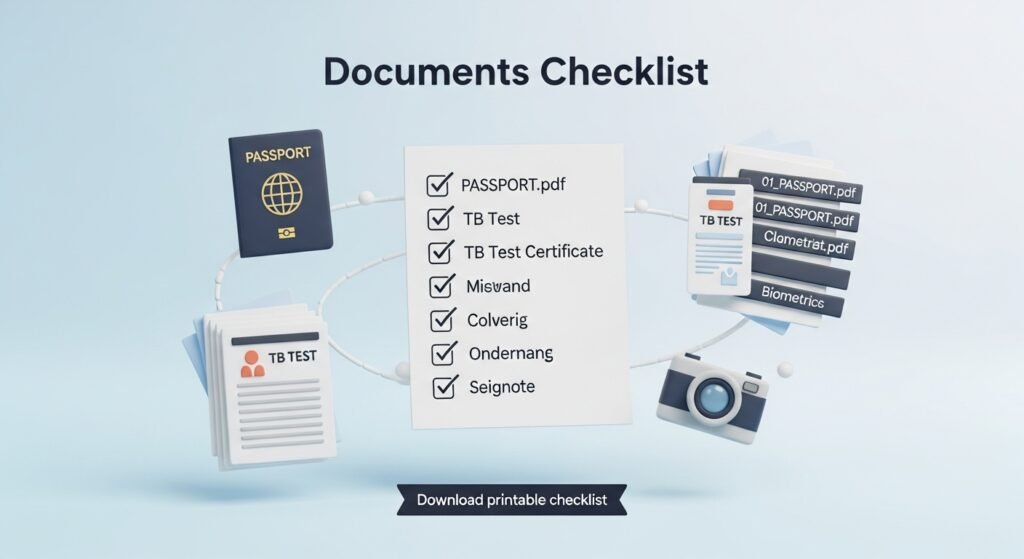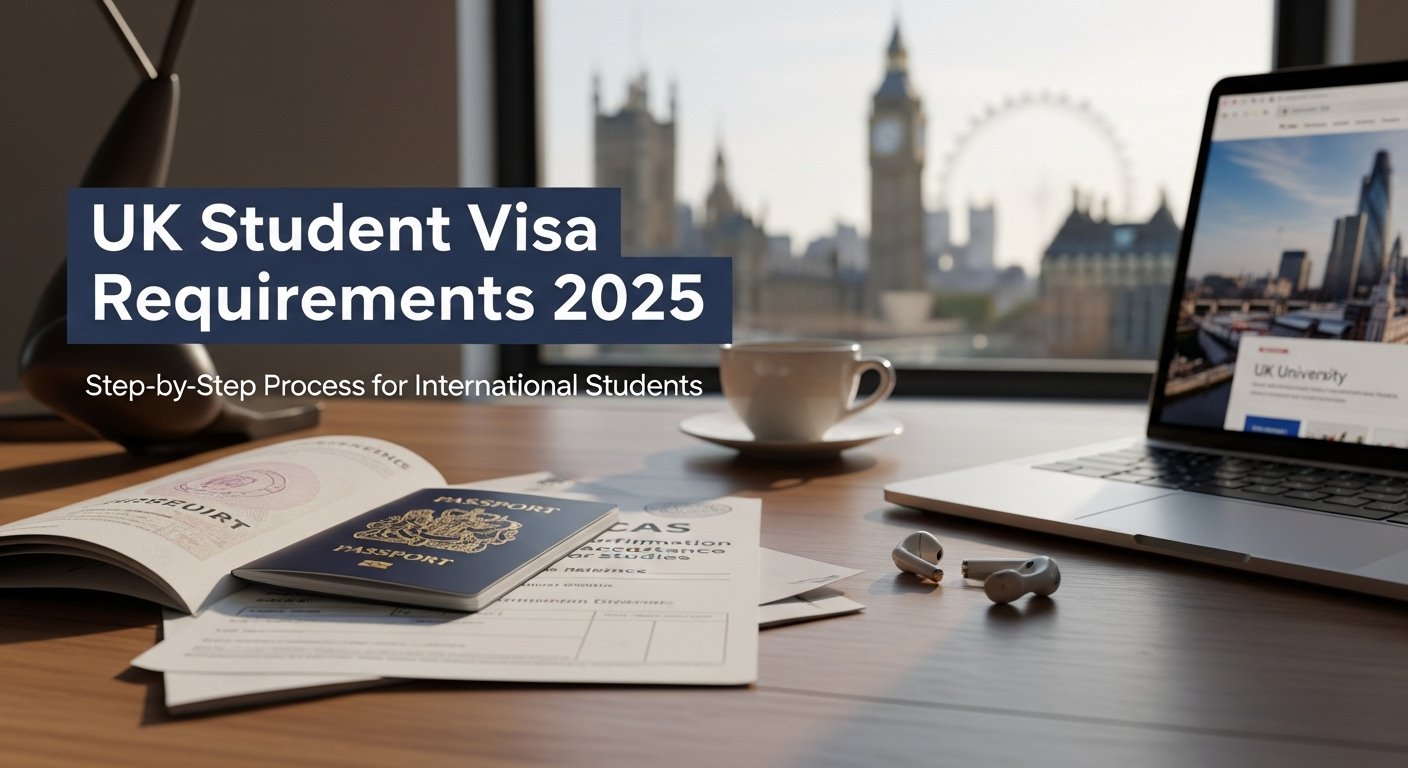UK Student Visa Requirements 2025 — A Clear Guide Step-by-Step
Introduction — start here if you’re aiming for the UK
If you’re planning to study in the UK, the single piece of information that will make or break your plan is the UK student visa requirements. I’ve helped friends and read dozens of applicant stories, and one thing stands out: people who know the UK student visa requirements early make calm, confident applications; those who don’t learn the hard way.
This guide walks you through the UK student visa requirements in plain English — what each requirement actually means, how to prepare the documents, where applicants trip up, and practical tactics that work. I’ll share real applicant lessons so you can avoid the common traps and get your visa sorted with as little stress as possible.
What are the UK student visa requirements — the essentials
At its core, the UK student visa requirements are a set of checks the UK Home Office uses to confirm you are a genuine student, have a place to study, and can support yourself while you’re here. Those checks include a sponsor (your university), money, identity documents, and, where needed, proof of English ability.
In short, the UK student visa requirements answer these three questions:
- Who is sponsoring you? (CAS from your university.)
- Can you afford to live and study in the UK? (financial evidence.)
- Are you who you say you are? (passport, biometrics, TB tests where needed.)
Let’s take each requirement apart and make it simple.

Step 1 — Confirm your CAS: the number that unlocks your application
The most important single item among the UK student visa requirements is the Confirmation of Acceptance for Studies — the CAS. Your university issues this after you accept an offer and provide required documents. The CAS contains a unique reference number, course dates, fees outstanding, and sponsor details.
Why the CAS matters in the list of UK student visa requirements:
- You cannot complete the visa form without the CAS reference.
- The Home Office checks the CAS against university records. Any mismatch can cause delays.
- You must use the CAS within the timeframe stated by your university (usually six months).
Practical tip: when you get your CAS, read it slowly. If your name or course dates are wrong, ask your university to correct it immediately — fixing CAS errors is far easier before applying than after.
Step 2 — Financial evidence: demonstrate you meet the maintenance requirement
One of the heaviest parts of the UK student visa requirements is showing you have enough money. The Home Office requires that you prove funds for tuition plus a set amount to cover living costs for a certain period.
How to meet the financial part of the UK student visa requirements:
- Use personal bank statements in your name, or a parent/guardian’s account with a signed letter of consent.
- Display the required balance for the specified consecutive days (commonly 28 days).
- Include any official scholarship or government sponsorship letters.
A quick example calculation is useful (always check the Home Office for the exact current figures before you apply), because the financial element is one of the most common reasons for refusal or delays in meeting the UK student visa requirements.

Step 3 — English language proof and course entry rules
Many courses require proof of English competence, and that is part of the UK student visa requirements for non-native speakers. Universities often accept tests such as IELTS or TOEFL, but in some cases prior study in English or specific qualifications can be accepted — and if the university has recorded your English evidence on the CAS, you won’t need to upload additional test scores.
Because English evidence is part of the UK student visa requirements, always confirm whether your test needs to be recent and whether the university has already recorded this information in your CAS.

Step 4 — Documents checklist: everything to gather before applying
A clear, organized documents pack is a huge advantage when meeting the UK student visa requirements. Below is a practical checklist — assemble these as neat PDFs and label them so nothing gets lost.
Standard documents for the UK student visa requirements:
- Passport (valid).
- CAS reference and university offer letter.
- Bank statements or sponsorship letters proving maintenance funds.
- TB test certificate (if required for your country).
- Evidence of English language ability (if needed).
- Proof of parental consent and accommodation for applicants under 18.
- Any academic transcripts or certificates relevant to your course.
Label files like: 01_Passport.pdf, 02_CAS.pdf, 03_BankStatements.pdf. Clear naming helps both you and any caseworker reviewing your file.
Step 5 — Application fees and the Immigration Health Surcharge
Paying the right fees is part of the UK student visa requirements. You must pay the visa application fee and usually the Immigration Health Surcharge (IHS), which gives you access to the UK’s National Health Service while studying.
Keep receipts and confirmation emails together with your other documents; payment proof is a simple but crucial piece of the UK student visa requirements.
Step 6 — Biometrics and the appointment process
After submitting the online application, you’ll book a biometric appointment. This is a formal step in the UK student visa requirements: you’ll give fingerprints and have your photograph taken.
Notes on biometrics as part of the UK student visa requirements:
- Appointments are generally well-managed if you book early.
- Some countries require an additional interview or documents at the center — always check your local visa application centre guidance.
- Keep a printed copy of your appointment confirmation to avoid small administrative issues on arrival.
How to Apply for Study Abroad Programs in the USA 2025 Guide
Step 7 — Common pitfalls applicants make
Understanding the most frequent mistakes will help you navigate the UK student visa requirements smoothly. These errors keep cropping up in stories from real applicants:
- Incorrect CAS details: mismatched names or course dates. That’s a major stumbling block against the UK student visa requirements.
- Financial evidence gaps: not keeping the required balance for the required consecutive days. Money rules are strictly enforced under the UK student visa requirements.
- Applying from the wrong country: you must normally apply from where you have legal residence — a surprising but common issue within the UK student visa requirements.
- Ignoring TB test requirements: some applicants forget TB certificates, an easily avoidable element of the UK student visa requirements.
Fix these before you submit and your application will be far less likely to be delayed.

Step 8 — Arrival, BRP and in-country conditions
When your visa is granted, you’ll receive a vignette or a digital confirmation and instructions to collect your Biometric Residence Permit (BRP) in the UK. These are critical parts of fulfilling the UK student visa requirements once you arrive.
After arrival — what the UK student visa requirements expect of you:
- Collect your BRP promptly from the designated post office.
- Register with a GP (doctor) if you’ll be in the UK long enough to need one.
- Know your work rights on the visa — the UK student visa requirements set limits on hours during term-time and full-time during vacations.
50 Free Study Resources Every Student Should Save in 2025
Step 9 — If something goes wrong: extensions, appeals, deferrals
Sometimes plans change. If your course start is delayed or you need an extension, you’ll need to understand how changes interact with the UK student visa requirements.
When dealing with changes to your course or visa status, here’s how the UK student visa requirements typically apply:
- Speak with your university’s international office immediately if you need to defer or change your course. They can issue an updated CAS, which is central to the UK student visa requirements.
- If you need to extend your stay, apply before your visa expires and make sure your extension application meets the UK student visa requirements for finances and sponsorship.
- If your visa is refused, review the refusal letter carefully and seek advice on whether an administrative review or fresh application is right — refusal letters will reference specific UK student visa requirements you missed.
Top 10 Student Productivity Apps in 2025
A straightforward timeline — how to schedule your steps
Planning your timeline keeps you aligned with the UK student visa requirements and avoids last-minute panic. Here’s a simple schedule:
- 4–6 months before course start: accept offer, request CAS and confirm scholarship or sponsorship details. This sets up the CAS requirement in the UK student visa requirements.
- 2–3 months before start: assemble finances, book English tests if needed — these complete parts of the UK student visa requirements.
- 6 weeks before start: apply for the visa, book biometrics, and prepare for travel — critical deadlines for the UK student visa requirements.
- On arrival: collect BRP and register with university — fulfilling post-arrival UK student visa requirements.
Quick FAQ — plain answers to common questions
Q: How long before the course can I apply?
A: Usually up to six months before your course starts — this is part of the scheduling for the UK student visa requirements.
Q: Can I bring family?
A: Dependants are allowed in certain circumstances — check whether your situation meets the additional UK student visa requirements for dependants.
Q: Will I be allowed to work?
A: Most students can work limited hours during term and more during vacation, as set out by the UK student visa requirements.
Top 20 Best Educational Websites for Students in 2025
Final checklist — last look before you press submit
Before you submit, confirm every item of the UK student visa requirements is ready:
- CAS checked and saved.
- Financial statements covering the required period.
- English evidence confirmed or recorded on your CAS.
- Visa fees and IHS paid.
- Biometrics appointment booked.
- TB test (if applicable) completed and certificate ready.
A final clean, labelled PDF pack makes the caseworker’s job easier and reduces the chance of follow-up — and that’s the pragmatic side of meeting the UK student visa requirements.
Closing thoughts — make the process work for you
The UK student visa requirements aren’t designed to be a mystery; they’re a set of standards to make sure students arrive prepared. The real advantage comes from early preparation: get your CAS checked, line up the bank statements, and ask your university for help when something looks unclear.
If you treat the UK student visa requirements as a checklist — and keep calm if a hiccup appears — you’ll make the process much more manageable. Put simply: preparation beats panic.
Call to action
If you’d like a printable checklist that maps every step to the exact documents needed for the UK student visa requirements, I can create one for your specific course and city. Share your course level (undergraduate, master’s, PhD) and whether you’ll study in London or elsewhere, and I’ll draft a tailored timeline and document checklist to help you apply confidently.



